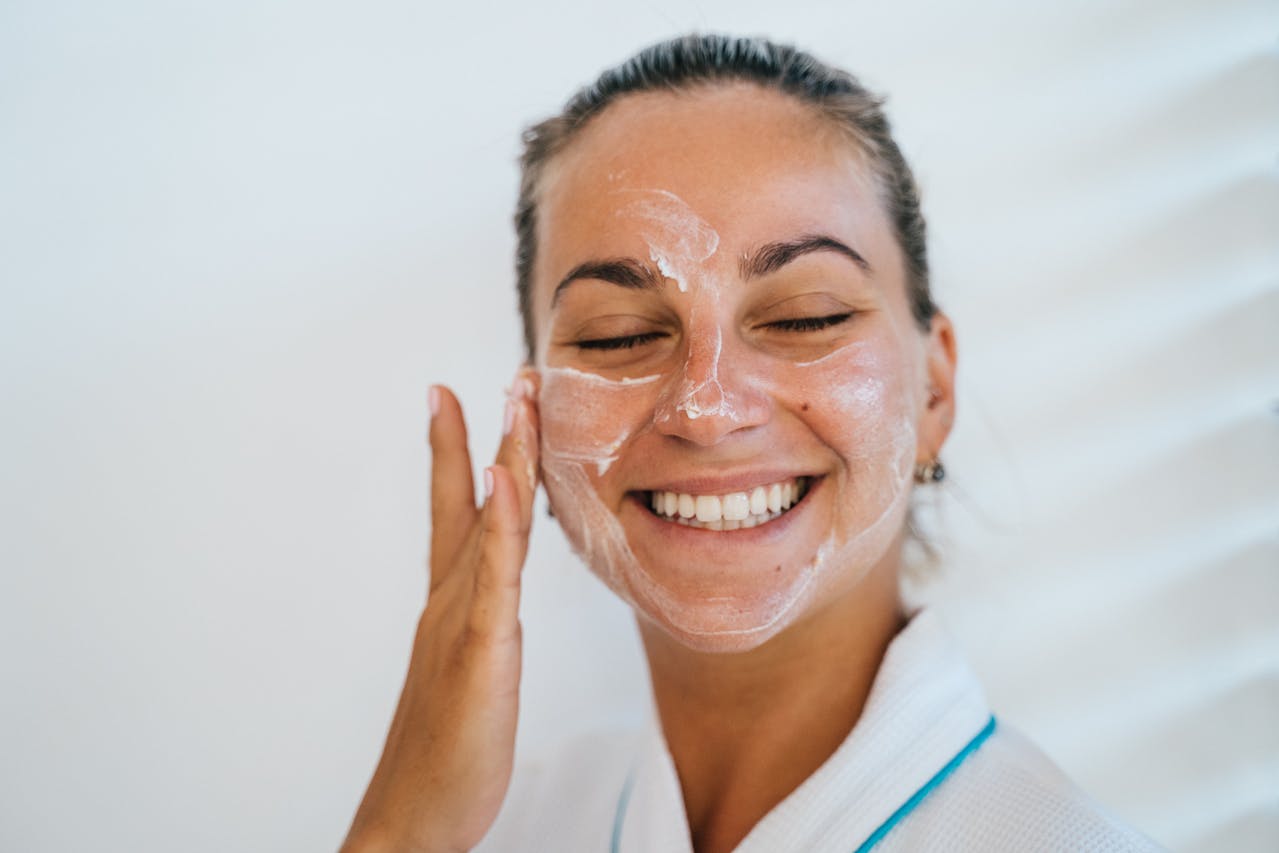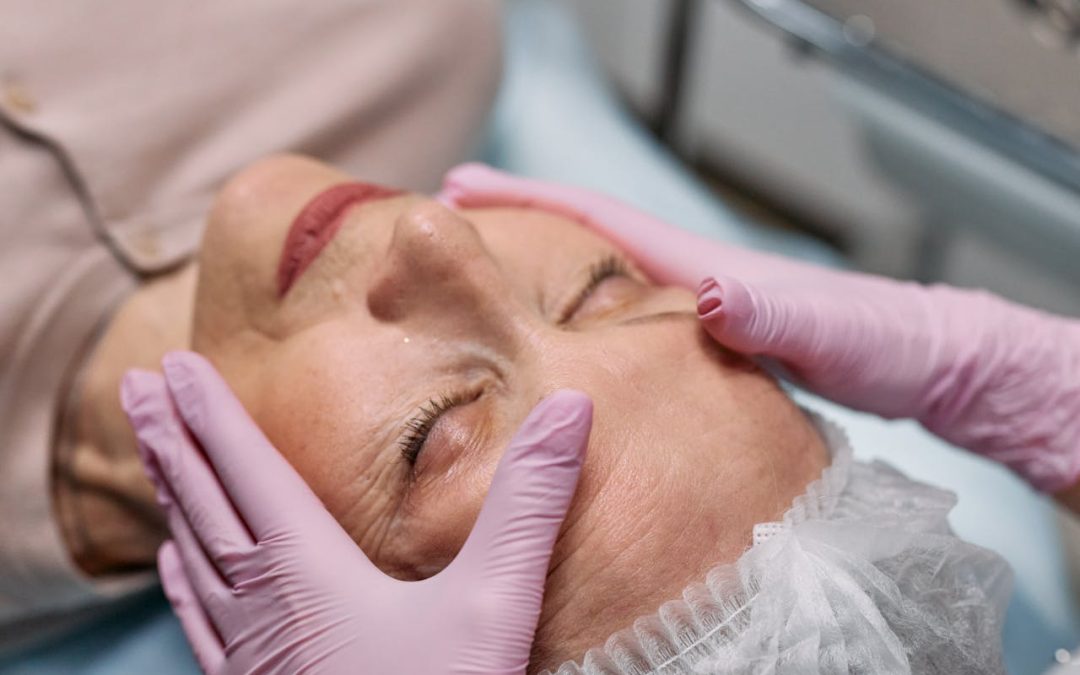Want to give your dehydrated skin the TLC it deserves? Choosing the right moisturizer is key. With a myriad of options in the market, finding the perfect match can be overwhelming. But fear not, we’ve got you covered! In this guide, we’ll walk you through the essential factors to consider when selecting a moisturizer for your thirsty skin. From ingredients to skin type compatibility, we’ll help you navigate the beauty aisles with confidence. Say goodbye to flaky, parched skin and hello to a hydrated, glowing complexion. Get ready to make informed decisions that will leave your skin looking and feeling its best.
Understanding Dehydrated Skin
Signs of Dehydrated Skin
Dehydrated skin manifests itself through tightness, flakiness, and dullness. These signs indicate a lack of water in the skin cells, emphasizing the need for proper hydration.
Dehydration vs. Dryness
Dehydration is distinct from dryness; while dehydration signifies a lack of water, dryness refers to a deficiency in oil production. Understanding this difference is crucial for selecting the right skincare products.
Environmental Factors Impacting Skin Dehydration
Various environmental factors, including weather conditions, humidity levels, and skincare routines, can significantly contribute to skin dehydration. For instance, exposure to harsh weather or excessive air conditioning can strip the skin of its natural moisture.
Identify Your Skin Type
Assess Characteristics
Assess your skin’s characteristics to determine the most suitable moisturizer. Observe oiliness, sensitivity, and proneness to breakouts. Understanding these aspects helps in selecting the right product.
Conduct a Simple Test
Conduct a simple test to identify your skin type accurately. Observe how your skin reacts after cleansing. Oily skin types may feel greasy, while sensitive skin might show redness or irritation.
Consult with Dermatologist
Consulting with a dermatologist can provide professional insight. Seek guidance if unsure about your skin type. Dermatologists can offer tailored recommendations based on your specific skin concerns.
Choosing the Right Moisturizer
Match Formulation
Finding the right moisturizer involves matching its formulation to your specific skin type. Whether you have oily, dry, combination, or sensitive skin, there are moisturizers tailored to address each concern effectively. Look for labels that indicate suitability for your skin type.
It’s crucial to understand that using a moisturizer not designed for your skin type can lead to issues like breakouts or excessive greasiness. For instance, if you have oily skin, opt for a light moisturizer that is oil-free and non-comedogenic. Conversely, individuals with dry skin may benefit from a thick moisturizer with intense moisturizing qualities.
Consider Climate
When choosing a moisturizer, consider the climate and seasonal changes in your area. In colder months, you may require a heavier, more emollient body moisturizer to combat dryness caused by indoor heating. Alternatively, during warmer seasons, a lighter formula or gel-based facial moisturizer might be more suitable.
The effects of climate on the skin cannot be understated. Harsh weather conditions can strip the skin of its natural oils, leading to increased dehydration. Therefore, adapting your moisturizer based on these external factors can help maintain optimal hydration levels throughout the year.
Test Products
To find your favorite moisturizers, it’s essential to test different products and observe how your skin reacts to them. Everyone’s skin is unique, and individual reactions to ingredients can vary significantly. Perform patch tests before incorporating a new moisturizing cream or moisturizing lotion into your daily skincare routine.
Sampling various facial moisturizers allows you to assess factors like texture, scent, absorption rate, and overall compatibility with your skin. Look for products that not only provide hydration but also address any specific concerns you may have, such as anti-aging properties or acne-fighting ingredients.
Cream, Lotion, or Ointment?
Texture Selection
When deciding between cream, lotion, or ointment for dehydrated skin, it’s crucial to consider the texture. Thicker products such as creams and ointments provide more hydration due to their higher oil content. For severely dehydrated skin, opt for a richer texture to lock in moisture effectively.
Thicker products like creams and ointments create a protective barrier on the skin, preventing water loss and enhancing hydration levels. On the other hand, lotions are lighter and contain more water, making them suitable for less severe dehydration. The choice of texture significantly impacts the moisturizing effectiveness based on the skin’s hydration needs.
Daytime vs. Nighttime Use
Lotions are ideal for daytime wear as they are lightweight, absorb quickly, and do not leave a greasy residue. Their fast-absorbing nature makes them perfect for use under makeup or during the day when you need quick hydration. Conversely, creams and ointments are better suited for nighttime application. The thicker consistency of these products provides intense hydration throughout the night, aiding in skin repair and rejuvenation.
Area-Specific Application
Consider the specific areas of your body that require hydration when choosing between lotions, creams, or ointments. For dry patches or sensitive areas like elbows, knees, or heels, thick ointments rich in emollients and occlusives can offer deep moisturization. On the face, where the skin is more delicate and prone to dehydration, opt for nourishing face creams containing ingredients like ceramides to restore the skin’s natural barrier.
Pros and Cons:
- Pros: Tailored hydration based on skin needs, effective moisture retention.
- Cons: Some textures may feel heavy or greasy, trial and error may be needed to find the right fit.
Key Ingredients to Look For
Hydrating Ingredients
When selecting a moisturizer for dehydrated skin, focus on key hydrating ingredients. Hyaluronic acid is a powerful humectant that draws moisture into the skin, keeping it hydrated and plump. Glycerin is another essential ingredient known for its ability to attract water molecules, aiding in skin hydration. These ingredients work wonders in replenishing moisture levels in the skin, combating dryness and promoting a healthy complexion.
Soothing Agents
In addition to hydrating ingredients, seek out moisturizers containing soothing agents. Aloe vera, with its anti-inflammatory properties, can help soothe and calm irritated skin. Similarly, chamomile is renowned for its calming effects on sensitive skin, reducing redness and irritation. By incorporating these soothing agents into your skincare routine, you can effectively address skin dehydration while promoting a more balanced and comfortable complexion.
Sun Protection Factor (SPF)
For comprehensive skincare, consider opting for moisturizers with added sun protection factor (SPF). SPF-infused moisturizers offer dual benefits by providing hydration while safeguarding your skin from harmful UV rays. Especially for daytime use, prioritizing a moisturizer with SPF can help prevent sun damage, premature aging, and potential skin issues caused by prolonged sun exposure. This proactive approach ensures that your skin remains protected and adequately moisturized throughout the day.

Ingredients to Avoid
Alcohol
Products with alcohol can exacerbate skin dehydration, making it crucial to steer clear of them. This ingredient strips the skin of its natural oils, leading to increased dryness and irritation.
Fragrances and Dyes
Fragrances and dyes are common culprits that can trigger adverse reactions in sensitive skin types. These additives often lead to redness, itching, and discomfort, especially for individuals with dehydrated skin.
Heavy Oils
Heavy oils may seem nourishing but can be detrimental for dehydrated skin, particularly if you have oily or acne-prone skin. These oils tend to clog pores, potentially worsening existing skin issues.
When selecting a moisturizer for dehydrated skin, it is essential to be mindful of the ingredients present in the product. By avoiding alcohol-based products, fragrances, dyes, and heavy oils, you can prevent further dehydration and irritation, promoting healthier and more balanced skin.
Role of Humectants, Occlusives, and Emollients
Humectants
Humectants, such as hyaluronic acid and glycerin, are crucial for dehydrated skin. They attract moisture from the environment, helping to hydrate the skin deeply. These ingredients work wonders for individuals with dehydrated skin, providing a boost of hydration that lasts throughout the day.
Occlusives
Petrolatum and dimethicone are common occlusives found in moisturizers. By forming a protective layer on the skin’s surface, occlusives lock in moisture, preventing it from evaporating. For those with dehydrated skin, using a moisturizer containing occlusives can help maintain long-lasting hydration.
Emollients
Emollients like shea butter and ceramides play a vital role in improving the texture of dehydrated skin. These ingredients soften and smooth the skin’s surface, reducing roughness and enhancing its overall appearance. Incorporating emollients into your skincare routine can lead to healthier-looking skin over time.
Tips for Effective Moisturizing
Apply Moisturizer on Damp Skin
Applying moisturizer on damp skin is crucial to effectively lock in hydration. When the skin is damp, it helps the moisturizer penetrate deeper, providing more moisture and nourishment. This simple step can significantly enhance the effectiveness of your skincare routine.
Use Gentle Application Techniques
When applying moisturizer, remember to use gentle, upward strokes. Avoid harsh rubbing or pulling on the skin, as this can lead to irritation and damage. By using gentle motions, you ensure that the moisture is evenly distributed and absorbed without causing any harm to your skin.
Reapply Throughout the Day
In dry environments or during harsh weather conditions, it’s essential to reapply moisturizer as needed throughout the day. This is especially important for individuals with dehydrated skin, as frequent reapplication helps maintain optimal moisture levels. Carry a small bottle of moisturizer with you to ensure your skin stays hydrated and healthy.
Common Mistakes to Avoid
Skipping Moisturizer
Avoid skipping moisturizer, even if your skin feels oily. Hydration is essential for all skin types, including dehydrated skin. Lack of moisture can actually trigger more oil production, leading to breakouts.
Layering Too Many Products
Don’t layer too many products on your body. Overloading the skin with multiple products can overwhelm it, causing irritation and exacerbating dehydration. Stick to a simple skincare routine with a focus on hydration.
Using Expired Products
Refrain from using expired products on your skin. Expired moisturizers can lose their effectiveness, leading to inadequate hydration for your dehydrated skin. Moreover, they may contain harmful bacteria that could harm your skin.
Final Remarks
Now that you understand how to choose the right moisturizer for your dehydrated skin, identifying your skin type is crucial. By selecting the appropriate cream, lotion, or ointment with the right ingredients and avoiding harmful ones, you can effectively hydrate your skin. Remember the role of humectants, occlusives, and emollients in your skincare routine and follow the tips provided to avoid common mistakes.
Ensure you prioritize moisturizing regularly and correctly to maintain healthy, hydrated skin. Your skin deserves the best care, so make informed choices when selecting your moisturizer. Take charge of your skincare routine and enjoy the benefits of well-moisturized, radiant skin.
Revitalize Your Skin with the Best HydraFacial for Dehydrated Skin!
No other HydraFacial treatment for dehydrated skin compares to ours at Simply Skin Esthetics in downtown Walnut Creek, California. Why? We blend cutting-edge techniques, premium materials, and years of expertise to deliver deep, lasting hydration for even the most sensitive skin types – all with the highest standards of professionalism and hygiene.
Finding an esthetician who can cater to your dehydrated skin needs with a HydraFacial in a compassionate, kind, and professional manner can be challenging. That’s why our service stands out as the best in the San Francisco East Bay Area. Our commitment to exceptional care is evident in our loyal clientele.
At Simply Skin Esthetics, we offer more than just HydraFacials. Our extensive range of services includes Ultrasound Facials, Signature Facials, Men’s Facials, Express Facials, Treatments/Peels, Teen Facials, and Back Facials. Ready to transform your skin and experience unparalleled hydration? Contact us today to schedule your first session and discover the Simply Skin Esthetics difference!
Don’t wait – your journey to radiant, hydrated skin starts here.


